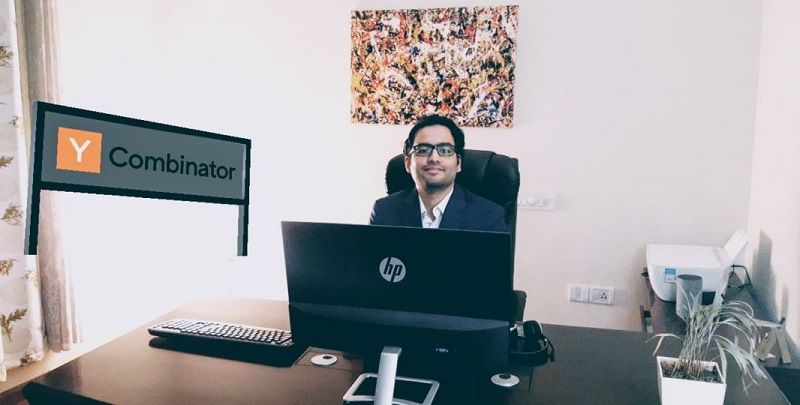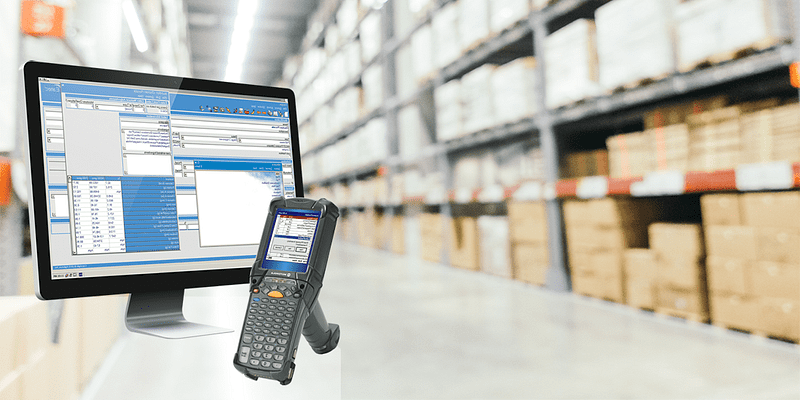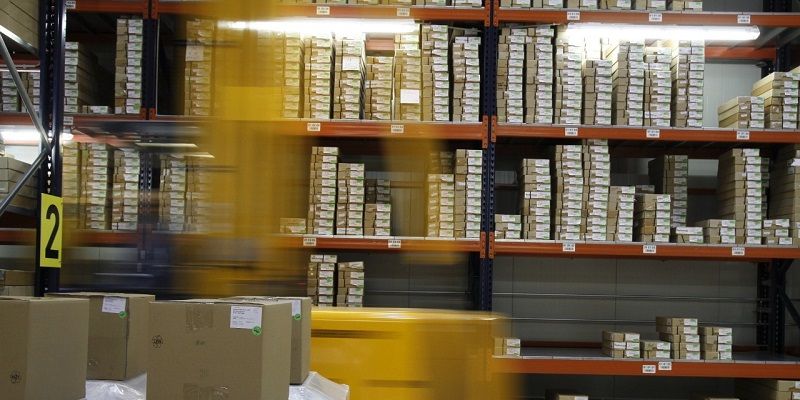
Harsh Vaidya has been picked by Y-Combinator for the summer 2020 batch. He is the founder of WareIQ.
There’s a reason why many national postal services like the USPS and India Post are struggling to survive. Ecommerce giants Amazon and Walmart have disrupted global supply chains with their access to a network of logistics and warehouse partners. Amazon has enabled brands on its platform to reach customers within three days, and Walmart has ensured that there is a steady supply of products at any given point in time.
In India, thousands of regional brands, which are just beginning to test the waters in the digital world, are finding themselves in a precarious situation. These brands, many of whom are mom and pop stores, have no way of competing with these global ecommerce and retail giants as they don’t have access to affordable and trustworthy warehousing facilities.
Sensing an opportunity, Harsh Vaidya and Aayush Mattoo, two friends from Delhi, started a platform called WareIQ in 2019. It allows brands in India to offer next-day delivery to their customers, and compete with Amazon and Walmart.
"Currently, 80 percent of ecommerce parcels outside Amazon reach customers in 5-15 days. The reason is that 90 percent of online brands ship from a central warehouse while demand is highly fragmented. High fixed investments, rigid contracts and technology complexity makes distributed fulfilment inaccessible to online brands," Harsh Vaidya, Co-founder of WareIQ, tells YourStory.
WareIQ simplifies the ecosystem through its software-only platform that connects a nationwide network of fulfilment centres to last-mile couriers, thus centralising all tools on a single platform.'
The beginning
Harsh graduated from NIT Bhopal in 2011 after studying Chemical Engineering, and has since worked for well-known businesses like Pitney Bowes, Capillary, and Zinnov.
The idea of WareIQ was born in the US when Harsh was working with Pitney Bowes, out of their headquarters in Stamford. There he experienced how Pitney Bowes used technology to work with about a million SMB customers.
"I could also see a global disruption to traditional supply chains caused by Amazon that has accelerated the speed of deliveries to next-day/two-day, and changed customer expectations. Doing this at scale for complex and growing geography like India is daunting, and I found it to be a very interesting problem from a core-technology perspective. So, started researching," says Harsh.
He took a sabbatical and came to India in January 2019. As part of his research, he interviewed a bunch of retailers and D2C online startups, and visited multiple warehouses across India. One key statistic that he found noteworthy was that 80 percent of ecommerce parcels in India reached customers in 5-15 days. Due to this, he found that brands were struggling to offer premium delivery services on par with Amazon, and thus, were losing revenues. They were reeling under the pressure of returns and cancellations.
That's when Harsh met Aayush Mattoo through a common friend. Aayush studied Mechanical Engineering from NIT-Kurukshetra and graduated in 2015. When he met Harsh, he had been working with Delhivery as Director of Operations, and had a deep understanding of India’s logistics ecosystem and the management systems required for large-scale operations. He had experienced how warehouses could be digitised and connected to brands.
"We decided to come together and started WareIQ with a proposition to offer next-day delivery for online brands in India, and build an Amazon-grade fulfilment infrastructure which was open to all," says Harsh.

Representational image
How WareIQ works
A big market trend that is catching up in India is for distributed fulfilment centres to increase their speed to reach customers faster. Customer retention for online brands now relies on whether they’re able to offer fast shipping options. However, present solutions, which are either not holistic or just digitise processes to capture information, are not geared towards this market trend. Products for warehouses that come from Oracle and Microsoft are seldom geared towards smaller brands.
"Let us take for example an online brand. There are shipping software companies that aggregate multi-carriers and offer shipping service to online brands. These solutions are effective for fulfilling orders from a single location but don’t scale for multi-location pickups. Further, the software doesn’t have warehousing management and multi-marketplace fulfilment capabilities,due to which a brand would have to use a separate technology and build out these integrations either themselves or by hiring a tech services firm," Harsh explains.
The other option is to outsource fulfilment to a traditional 3PL company. But another challenge crops up where brands would have to rent a significant amount of space, with high minimum billing and long-term contracts.
This model doesn’t scale for growing brands that want a multi-location fulfilment footprint in India. Also, their systems don’t communicate to any of the existing tech systems that brands might be using in their own warehouses/offline-stores.
To counter these, WareIQ’s solution works in three steps:
- Brands connect their online stores/marketplaces to the platform and send WareIQ their inventory.
- WareIQ recommends smart inventory placement by locations.
- As soon as a customer places an order, WareIQ ships it from the nearest fulfilment centre.
"We got introduced to our first customer through our network. They were facing challenges concerning long shipping timelines which led to huge returns and order cancellations that reflected poorly on the brand experience. Hence, taking a bet on us wasn’t a big risk for them. Also, our team members had a deep experience in ecommerce fulfilment and logistics, which helped in building trust," says Harsh.
WareIQ’s USP is as follows:
● Ability to create your own fulfilment network, and offer next-day/two-day deliveries
● Billing on usage with no minimum deposits.
● Onboarding in seven days versus three-to-six months
● No multiple spends with WMS systems, shipping software or physical infrastructure.
The startup’s work has been recognised globally and it is now part of the present Summer-20 batch of global accelerator Y-Combinator, which has helped build unicorns like Stripe and Airbnb. WareIQ has raised $150,000 through them.

WareIQ helps companies to work with warehouses on time

How bootstrapped startup Brown Living is building sustainable ecommerce for a green future
The challenges and the future
The underlying technology behind the startup’s fulfilment platform is very complex to build. Many stakeholders in the value chain are put into action from when a customer clicks on a product’s page to it being delivered to their door. Building an orchestration layer connecting the entire ecosystem, prediction systems for smart inventory placement, and controlling the entire shipping experience with multiple failure points was a difficult part of WareIQ’s business.
While WareIQ says it is too early for the startup to share revenues, it makes money on every transaction through its platform. It has standard rates for storage, order processing, last-mile delivery, and tech platform. With WareIQ, brands can start as small as a single rack or a pallet with no minimums or security deposits, and utilise their pan-India network of 100 warehouses and over 60 brands, in a plug-and-play manner.
The SaaS business model is paid for by using the technology and the fulfilment costs bundled on the platform. The company competes with Rakez and Increff.
"Our plan for the next 18 months is to capture the new market opportunity in ecommerce, accelerated by COVID-19. We’ll be hiring and investing significantly in our tech platform which allows our clients to offer differentiated value offerings to their end customers. Further, we’ll also target on expanding our network to new markets, in step with rising demand," says Harsh.
According to KPMG, ecommerce consumption in India is less than one packet per capita. This figure is far lower than China’s where it is 70, and in Europe, it is in the 20s. As India strives for digitisation and increasing digital spending, it is only a matter of time that the supply chain infrastructure would have to be upgraded to meet the scale and customer expectations of getting the deliveries fulfilled in time.
(Edited by Kanishk Singh)
Want to make your startup journey smooth? YS Education brings a comprehensive Funding Course, where you also get a chance to pitch your business plan to top investors. Click here to know more.
Link : https://yourstory.com/2020/08/wareiq-startup-amazon-warehouse-logistics-smb-saas-ycombinator
Author :- Vishal Krishna ( )
August 25, 2020 at 05:35AM
YourStory


